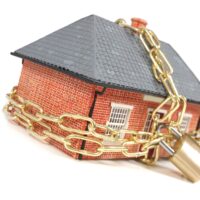What Can and Can’t Be Repossessed by Creditors

One of the most alarming and disheartening parts of struggling with debt is the fear that your property may be taken from you. Foreclosure of your home and repossession of your personal property adds insult to injury, often making it more challenging to pay down debts on top of how demoralizing and affronting it feels to have your property taken away. Not all assets are subject to repossession, however. Continue reading for a discussion of which types of property are and are not susceptible to repossession, and call an experienced Ventura debt relief and bankruptcy attorney for help with mounting consumer debt.
Items Subject to Repossession: Loan Collateral
Creditors can repossess property that is used as security for a loan. Commonly, the property itself serves as collateral for the loan (such as an auto loan or home mortgage). However, lenders can attach other property as collateral for loans as well. For example, some people take out a second mortgage in order to obtain a loan for some other reason, such as undertaking a business venture. The business loan would then be secured by the home as collateral. The most common items that are subject to repossession include the following:
- Vehicle. Auto loans typically use the vehicle as collateral for the loan. If you default on your car payments, the lender can repossess the vehicle. The lender might be a bank, a credit union, or even the auto dealer. Typically, they can repossess the vehicle after missed payments and a grace period even without a court judgment.
- Home. Home loans are secured by the property. A mortgage is just a loan that uses the property as collateral. If you default on your mortgage payments and you do not find some form of relief through debt settlement, government programs, or bankruptcy, your home can be foreclosed upon and taken by the lender. The lender will then conduct a sale of the property to recoup the loan proceeds. Any surplus amounts will be paid back to you. If the property sells for less than the outstanding mortgage remaining, you might still owe the remainder under a judicial foreclosure, although it will no longer be secured by property.
- Rent-to-Own Property. Rent-a-Center and other rent-to-own companies lease property to consumers, rather than sell the property outright. Commonly-rented property includes home appliances, furniture, electronics, and other expensive personal items. The contracts usually have an agreement such that once the consumer pays enough to rent the property over time, they will eventually own the property outright. However, if the customer stops paying the monthly rental cost, the distributor or manufacturer can take the product back and keep all amounts paid to date. Many debtors’ rights advocates have alleged that these companies engage in predatory practices, hoping to repossess property that has been 90% paid for. Note that a “layaway” arrangement is different in that the seller will hold on to the item until the buyer finishes making all payments.
No Repossession: Unsecured Property
Creditors can only repossess items that are attached to a loan. Unsecured debt, such as credit card debt or medical debt, is not actually tied to any property. A credit card company or medical services provider cannot show up at your house and demand to “repossess” your car to pay off your bills.
Even if a loan is used to purchase a particular item, so long as the loan contract does not list the item as collateral, the item cannot be repossessed. Auto loans, for example, are not always secured by the vehicle. If you secured a personal loan to buy a car but the contract does not list the car as collateral, then your car will not be repossessed even if you default.
Creditors can sue you for the amount that you owe, and you will need to find a way to pay them back (or declare bankruptcy or settle with the creditor), but they cannot simply take your property (unless the creditor has obtained a court judgment allowing for such possession). If you wind up declaring Chapter 7 bankruptcy, however, then certain property may be subject to collection and liquidation by the bankruptcy trustee, unless it falls under one of the many exemptions available under bankruptcy law. Talk to a seasoned debt relief attorney to learn how to protect your valued property, even if you file for bankruptcy.
Take the Right Steps Toward Financial Freedom With Help From an Experienced Southern California Debt Relief Attorney
If you are dealing with mounting debt and considering debt relief options including bankruptcy, please contact Rounds & Sutter for a free, confidential consultation. With offices in Ventura, Santa Barbara and Westlake Village, we represent clients throughout Southern California, offering tried & true legal counsel in the face of life’s challenges.
